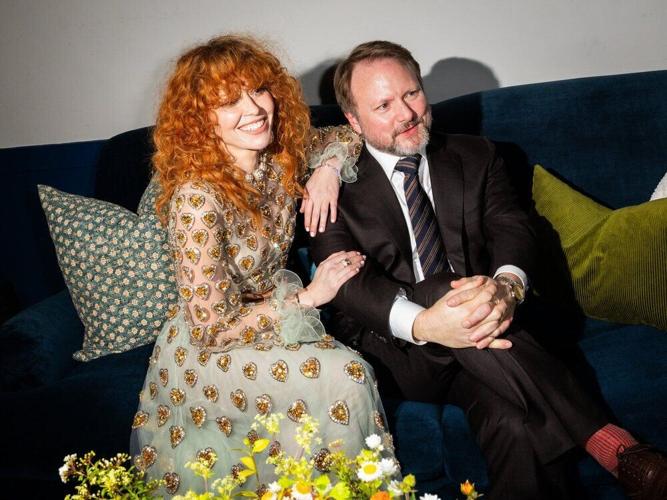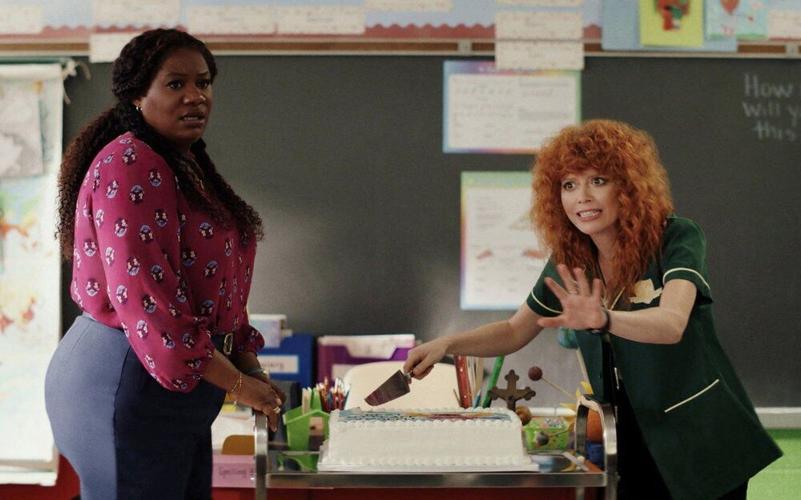Executive Producer Rian Johnson says he doesnŌĆÖt operate ŌĆ£Poker FaceŌĆØ like other TV series.
ŌĆ£WeŌĆÖre casting week to week, which is almost laying down track as the train is moving forward,ŌĆØ he explains.
The benefit? ŌĆ£It ends up letting us get people we wouldnŌĆÖt be able to get if we booked them eight months (earlier). Because of that, we donŌĆÖt know who weŌĆÖre going to get.ŌĆØ
Fred Armison, Nick Kroll and John Mulaney, for example, might have said no if they hadnŌĆÖt been asked at the last minute. Touring gigs, family obligations and other work often put a wrench in long-range plans.
ŌĆ£When we finally get the final sort of thing thatŌĆÖs going to lock, weŌĆÖre doing these high fives and backflips that we just canŌĆÖt believe weŌĆÖve pulled off,ŌĆØ says star and Executive Producer Natasha Lyonne. ŌĆ£I just feel very moved and grateful that people show up.ŌĆØ
People are also reading…
That ŌĆ£letŌĆÖs call friendsŌĆØ philosophy harkens back to ŌĆ£Columbo,ŌĆØ a show that inspired ŌĆ£Poker Face.ŌĆØ
Star Peter Falk, for example, would bring friends like Ben Gazzara, Gena Rowlands and John Cassavetes on his show. That upped the quality and allowed him toy with the conventions of television. So, too, ŌĆ£Poker Face.ŌĆØ
Growing up, Johnson says, he used to watch reruns of ŌĆ£Quantum Leap,ŌĆØ ŌĆ£The A-TeamŌĆØ and ŌĆ£Magnum, P.I.ŌĆØ Even though the episodes werenŌĆÖt connected, ŌĆ£I didnŌĆÖt feel like the characters were static or repeating themselves. The characters were constantly growing.ŌĆØ
In ŌĆ£Poker Face,ŌĆØ LyonneŌĆÖs Charlie Cale is on the run, finding herself entangled in a series of murders that just happen to occur wherever she goes. Lyonne says she crafts a backstory that doesnŌĆÖt necessarily figure into the plot but it helps her square what transpires. Both Lyonne and Johnson see Elliott GouldŌĆÖs performance in ŌĆ£The Long GoodbyeŌĆØ as a reference point. Similarly, Jeff Bridges in ŌĆ£The Big Lebowski.ŌĆØ
ŌĆ£ItŌĆÖs somebody who has lost interest in themselves and gained interest in their fellows┬ĀŌĆö┬Āthey moved from being on their own case into being interested in other peopleŌĆÖs cases,ŌĆØ Lyonne says. ŌĆ£ThatŌĆÖs a real gift.ŌĆØ
Simple situations ŌĆö a car repair, a barbecue, a job selling merchandise at a concert ŌĆö get LyonneŌĆÖs character involved in other peopleŌĆÖs lives and, ultimately, their not-so-legal situations.
In the second season, the goal has been to avoid repetition, Johnson says. ŌĆ£Because each episode is so much its own tone, I want each director to come in, look at the script as their own little movie and shoot it however itŌĆÖs appropriate, style-wise. A style does kind of emerge.ŌĆØ
In the early days of ŌĆ£Columbo,ŌĆØ Johnson adds, Steven Spielberg directed an episode. ŌĆ£He was incredibly young, but the shooting style, you can see ŌĆśDuelŌĆÖ in it. You can see ŌĆśSugarland Express.ŌĆÖ But you can also see ŌĆśJaws.ŌĆÖ You can see his early style.ŌĆØ
That kind of signature approach is what Lyonne and Johnson want ŌĆ£Poker FaceŌĆØ to have.
ŌĆ£I do kind of subscribe to HitchcockŌĆÖs view of suspense being a stronger engine to build something around than surprise,ŌĆØ Johnson says. ŌĆ£And a whodunit is surprise. ItŌĆÖs ŌĆśOh, that person did it.ŌĆÖ You need a stronger engine in the car if youŌĆÖre going to keep an audience interested for a whole episode or a whole movie.
ŌĆ£ItŌĆÖs like the bumblebee that, according to physics, shouldnŌĆÖt be able to fly but does. I find it endlessly interesting. Working with it and feeling it work every episode is like doing a little magic trick every time.ŌĆØ
ŌĆ£Poker FaceŌĆØ begins its second season this week on Peacock.





















